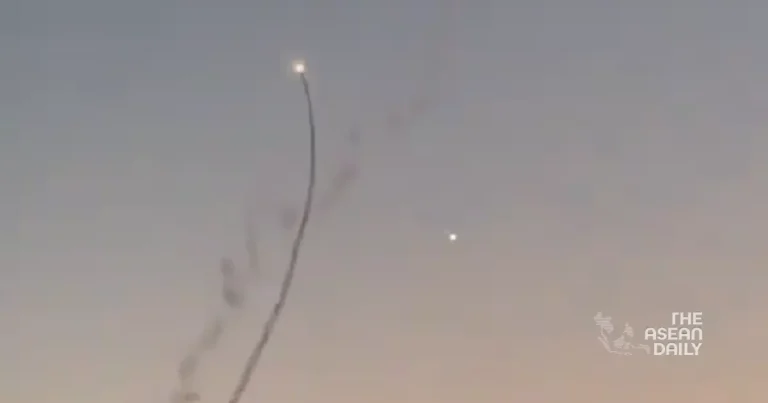25-8-2024 (JERUSALEM) In a dramatic escalation of tensions along the Israel-Lebanon border, Hezbollah launched a massive barrage of rockets and drones into Israeli territory early Sunday morning, prompting a swift and forceful response from the Israeli military. The exchange marks one of the most significant clashes in the ongoing border warfare that has paralleled the conflict in Gaza for over 10 months.
The Iranian-backed Lebanese group claimed to have fired 320 Katyusha rockets towards Israel, targeting 11 military installations in what it described as the initial phase of retaliation for Israel’s recent assassination of Fuad Shukr, a high-ranking Hezbollah commander. The attack was visible in the dawn sky, with missiles leaving dark vapour trails as air raid sirens blared across northern Israel.
In response, the Israel Defence Forces (IDF) reported deploying approximately 100 jets to strike more than 40 Hezbollah launch sites in southern Lebanon. The Israeli military asserted that its pre-emptive action had thwarted a much larger assault, claiming to have destroyed thousands of launcher barrels aimed at both northern and central Israel.
Israeli Prime Minister Benjamin Netanyahu issued a stern warning during a Cabinet meeting, stating that Sunday’s strikes were “not the final word” in the campaign against Hezbollah. He emphasised the operation as a step towards “changing the situation in the north and safely returning our residents to their homes”.
Despite the intensity of the exchange, both sides appeared to signal a desire to avoid full-scale war. Israel’s Foreign Minister indicated that the country was not seeking an all-out conflict, while Hezbollah suggested it was not planning further immediate strikes.
The clash comes at a critical juncture, with negotiators meeting in Cairo in a last-ditch effort to broker a ceasefire in Gaza. The risk of the conflict expanding into a wider regional conflagration, potentially drawing in Hezbollah’s backer Iran and Israel’s ally the United States, remains a significant concern.
The United Nations peacekeeping force in Lebanon and the UN special coordinator’s office have called for an immediate cessation of hostilities, describing the overnight developments as “worrying”.
As the situation unfolds, Israel has implemented civil defence measures across its northern and central regions, limiting public gatherings but allowing work to continue where rapid access to air raid shelters is available. Meanwhile, Lebanon reported extensive Israeli strikes on various towns in its southern region, with at least one fighter from the Hezbollah-allied Shi’ite group Amal confirmed killed.
The White House stated that US President Joe Biden is closely monitoring the situation, with senior US officials in continuous communication with their Israeli counterparts. The US reaffirmed its support for Israel’s right to self-defence while emphasising efforts to maintain regional stability.




